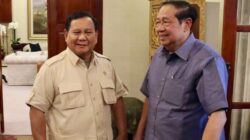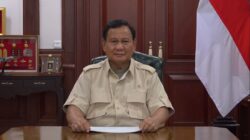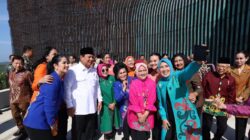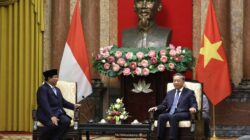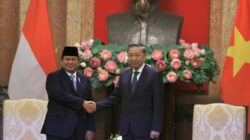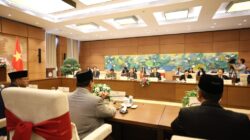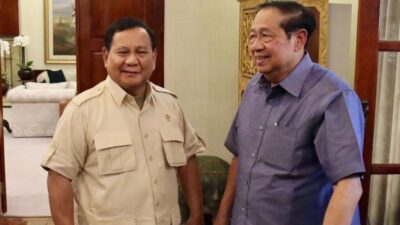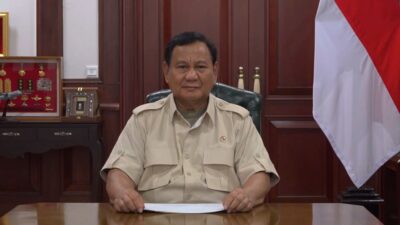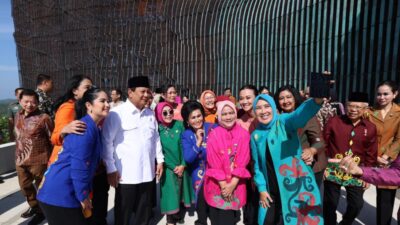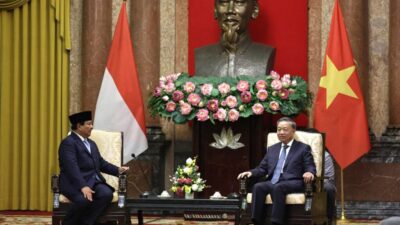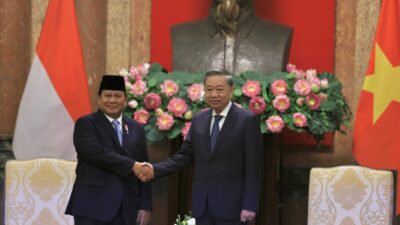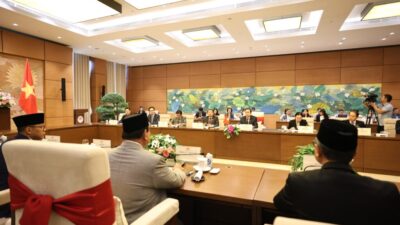Lieutenant General TNI (Ret.) Himawan Soetanto
One value I learned from Pak Himawan Soetanto is that a commander must be close to his men. A commander must be among his men when they wake up in the morning until they go to bed. A commander must check the condition of his men, starting from their kitchen, bathroom to the quality of their underwear. Thanks to Pak Himawan Soetanto, I have developed a habit of checking the details of the kitchen and equipment of my men. Once, I found out that the soldiers’ white underwear had turned brown. I also found out that the kitchen had been the source of the most corrupt practices. Just imagine, one kilogram of meat was rationed for 16 people. In the TNI, this was known as ‘razor meat‘ because the meat was as thin as a razor blade. It was tragic, indeed. Those are some of the things that I learned from the practical leadership of Pak Himawan Soetanto.
The first time I got to know Pak Himawan Soetanto was when I joined AKABRI in 1970. At that time, he served as the Deputy Governor of AKABRI in charge of education and training. He was very well-educated. He spoke excellent English and Dutch. He could even speak a little Japanese, which he had learned during the Japanese occupation of Indonesia. He also liked to read history books. Once again, the great figures I know are avid book readers. A leader is a reader. ‘Good leaders must read diligently,’ as the famous adage goes. His residence houses a lot of books. Whenever I met him, he always discussed books with me. He sometimes asked if I had read books by B. H. Liddell Hart, a British historian of military strategies, or Sun Tzu, a Chinese military strategist, and other books. Another thing that impressed me was his neat look. His face was always full of smiles. He was always humorous, calm but confident, and close to his men. He had a long combat experience, and it was evident in his bearing. This was in contrast to some who do not have much combat experience. They tend to be cold and distant with their men. They always want to obey the rules. Our term in the TNI for this type of figure is PUD-minded or PUD officer. PUD is the acronym for Internal Affairs Regulation. Meanwhile, TNI leaders who are used to being present amidst their men in the field are usually more relaxed and flexible. PUD is adapted to conditions on the ground. Moreover, I remember an article in PUD saying that unit commanders may adapt the PUD to the condition of each unit. It means that a commander has great authority to tailor regulations based on needs and situations. Therefore, one of the values I got from Pak Himawan Soetanto was that the commander must be close to his men. Commanders must be with them from dawn to dusk. Commanders must check on the condition of their men, ranging from the kitchen, bathroom, all the way to their underwear. Learning from Pak Himawan Soetanto, I have a habit of checking kitchen details and equipment. At one time, I once found that my soldiers’ underwear were brown, not white anymore. I also learned that the kitchen had been the source of many corrupt practices. One kilogram of meat would be divided between 16 people! This became famous in the TNI as ‘razor meat’, meat as thin as a razor blade. Tragic. Those are some practical leadership matters that I learned from Pak Himawan Soetanto. Lieutenant General Himawan Soetanto has an illustrious career. He became an inspiration to many in the army. I was very close to him. I remained close to him even after his retirement. He was one of my mentors. A few days before his death, I visited him in the hospital. His son told me that, other than close family members, he also wished to see me. ‘Where is the combat general?’ His children were confused as to who he meant by “combat general”. Some of them tried to clarify whether he meant Prabowo. He nodded. I was moved to hear the story. Therefore, when I came to visit him, I stood up straight and saluted him. By then, I had retired, and I came wearing civilian clothes. As we often conversed in English, I told him in English, ‘You are the real general, Sir!’ He shed tears. At that time, he could no longer speak. That is my memory of Pak Himawan Soetanto. It is a great honour that a general I admire was still hoping to see me in his last moments.
Lieutenant General TNI (Ret.) Sarwo Edhie Wibowo
Sarwo Edhie was charismatic. He was dashing, handsome, always neatly dressed. He was known as someone who led from the front. Even as the Special Forces Unit (RPKAD) commander, he was involved in the field. He was an idol of students, young people, and the idol of us, young officers and cadets. As my mentor at AKABRI, he often shared his experiences. At that time, he instilled in us the spirit of not giving up, the spirit of patriotism. He also had time to write a book titled My Life is for the Country and the Nation. That value was instilled in us as AKABRI Cadets. Patriotism through a love of the homeland and pride in the legacy of our forefathers. That was what Pak Sarwo instilled in us.
The first time I met General Sarwo Edhie was during my time as a cadet. He had yet to serve as the Governor of AKABRI (now AKMIL), but he was very famous. Pak Sarwo Edhie was also a close friend of my parents. Before I formally became his cadet, I had heard many stories about Pak Sarwo from my parents, how Pak Sarwo led the Army’s Para Commando Regiment (RPKAD, now KOPASSUS) at critical moments in October 1965 during the G30S/PKI communist coup. He was a charismatic figure. He was dashing, handsome, always well dressed. He was also well known as a commander who led operations from the front. As the Army’s Para Commando Regiment (RPKAD, now KOPASSUS) commander, he was still involved on the ground, so he is also an idol of young cadets. As my mentor at AKABRI, he often recounted his experiences. At that time, he instilled in us the spirit of persistence and patriotism. He also wrote a book titled ‘My Life is for the Country and the Nation’. That value was drilled into us as AKABRI cadets. The spirit of patriotism through a love of the homeland and pride in the legacy of our forefathers, that was the spirit that Pak Sarwo Edhie imparted in us. After he retired from active service, he briefly served as the Indonesian Ambassador for South Korea. For a short period, he was also Chairman of the Supervisory Body for the Internalization and Implementation of Pancasila Values (BP7). I remember how he maintained his attitude as a soldier. As a soldier known for his honesty and integrity, he did not leave behind much wealth upon his passing. Coincidentally, in the course of his life, he married all his three daughters to AKMIL graduates. The eldest one to Infantry Colonel Hadi Utomo, of the graduation year 1970; the second one to General TNI Susilo Bambang Yudhoyono, of the graduation year 1973, who would later become the sixth President of the Republic of Indonesia; and the youngest one to Lieutenant General TNI Erwin Sudjono, who would later become Commander of KOSTRAD. I also know these three officers well.
Grand General TNI (Ret.) Abdul Haris Nasution
I feel privileged to have an amazing opportunity that not many get to experience in this country. It was to talk face-to-face with a key figure of the ‘45 generation, a key figure in the struggle for our independence: Pak Nas. I feel like I became a student of a historical actor. He often shared his experiences, opinions, guerrilla warfare strategies, experiences against the Dutch, and many more with me. He was also very good at history and various languages, as were the other figures of the ’45 generation…
